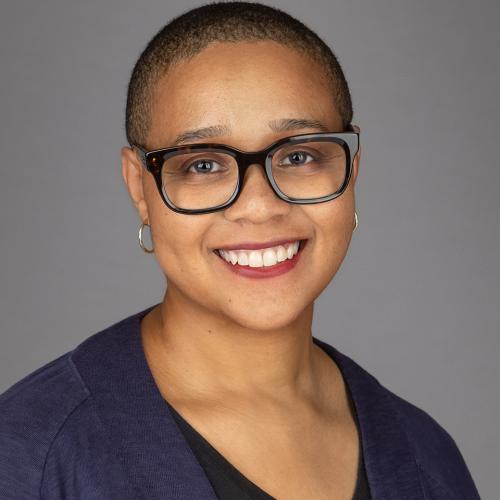Newly elected Virginia Republican Gov. Glenn Youngkin ran a campaign ad featuring a mother who eight years ago tried to ban Beloved, the Pulitzer Prize-winning novel by Toni Morrison, from her son's advanced placement high school English class. Youngkin's use of the ad has generated a discussion about banning books. Emily Knox is a professor and the interim associate dean for academic affairs in the School of Information Sciences, the author of Book Banning in 21st-Century America and editor of Trigger Warnings: History, Theory, Context. She talked with News Bureau arts and humanities editor Jodi Heckel.
Is Beloved a book that is regularly challenged in schools?
No, it is not challenged as much as Toni Morrison's The Bluest Eye. Beloved is on the list of recommended novels for the AP English exam but many schools do not offer AP courses. The Bluest Eye, on the other hand, is recommended for general high school English courses. Beloved is part of the standard canon for college-level English, so it only really appears in AP courses in high schools and not general English.
Beloved has both sexual content and violence. Are those the most common reasons why this book and others are challenged?
The American Library Association's Office for Intellectual Freedom collects statistics for banned and challenged books every year and publishes a list of the most frequently challenged books. Most of the books on the list are challenged because they center diverse characters. Challengers would argue that books challenged because they feature an LBGTQIA+ character are by definition "sexual," but this is not true. A character's sexual orientation or gender identity is only one facet of their life.
The American Library Association's archives are held here at Illinois, and the Office for Intellectual Freedom has long wanted to create an electronic database of challenged books so that there can be a more systematic analysis of the records. Hopefully that project can be completed soon!
You've said Morrison's unsanitized look at the horrors of slavery is actually what some people find objectionable about the book. Do you think Youngkin's decision to raise this issue in his campaign is in response to the recent disagreements over how best to teach the history of race in this country?
Yes, absolutely. Our country is going through a major shift in demographics with the so-called "Browning of America," where we will be a majority-minority society by 2040. Race has long been used as cudgel to divide our country into the haves and have-nots. The system of slavery based on race in this country was so brutal that it is difficult to wrap one's head around. The accident of birth meant that someone could "own" you. You had no autonomy and there were laws and norms in place to uphold this system. Race was also used as an excuse to forcibly remove people from the land itself. Teaching students about these ideas is always going to be difficult because it is at odds with our national myths of individual freedom.
What are the societal issues driving which books are challenged?
The main issue is change. What does it mean for the country to be majority-minority? What does that mean for our communities? Local public institutions like schools and libraries are one of the few places where individual actors are very close to the seat of power. Anyone can go to their local school or library board meeting (or even run for the board) and have their voice heard.
Why is it important to have students read a book like Beloved?
Rudine Sims Bishop was talking about children's books when she developed her theory of windows, mirrors, and sliding glass doors, but I believe her ideas are applicable to all fiction. Novels make history come alive. You can read about Margaret Garner and her desperate attempt to keep her children from being enslaved, or you can live alongside her in the mirror that Morrison created.
